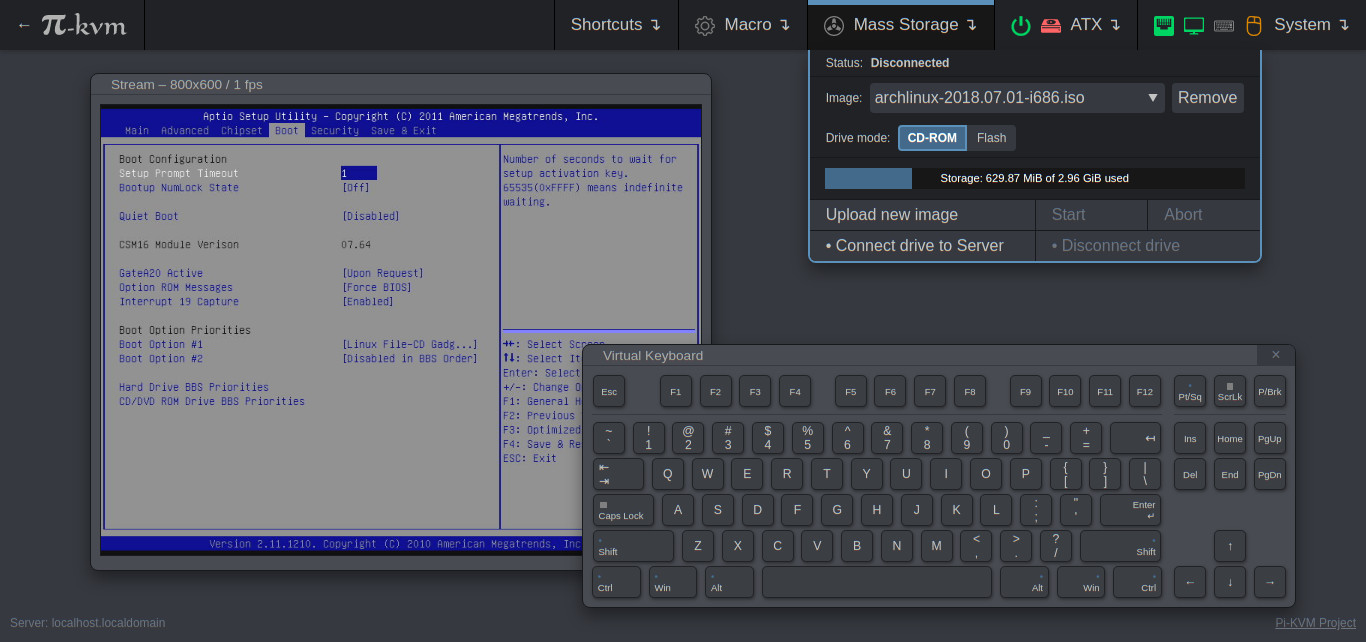Ever wondered if a PC could cool itself by… ‘breathing’?
Computers
DIY Tiny Handheld Computer Puts BASIC in the Palm of Your Hand
It may not be practical, but it’s at least functional!
This project puts the power of BASIC in your hands, literally. Designed by Anders Mygind, this tiny handheld computer runs a modified version of TinyBasic and is built around the ATmega328-PU, a chip similar to the ones used in the Arduino Uno. Though it’s not exactly user-friendly, both the keyboard and screen actually work. The device utilizes 12C-communication with the display and a button-matrix for the keyboard.

Windows 11 May Spark Scalping for TPM2.0 Chips, a Requirement To Run the OS
Microsoft’s Windows 11 reveal has sent prices for a little-known security chip soaring on eBay. That’s because the same chip is necessary to run the upcoming OS.
The chip is called the Trusted Platform Module (TPM) version 2.0. On Thursday, Microsoft revealed a PC will need the component to run Windows 11 once the OS begins rolling out to Windows 10 users as a free upgrade.
The new requirement is causing some consumers to flock to eBay to obtain TPM 2.0 modules for their PCs. And at least one merchant is capitalizing on the demand

Microsoft is bringing Android app support to Windows 11
Today, Microsoft has officially unveiled the new version of Windows: Windows 11. At the event, Microsoft detailed a number of visual and productivity changes coming to the desktop operating system. Towards the end of the event, Microsoft had a surprise announcement in store: the company is bringing Android apps to Windows 11, accessible through the Microsoft Store via a partnership with the Amazon App Store.

Bobby Towers’ Trochee Is a Parameterized, 3D-Printable, Raspberry Pi Pico-Powered One-Hand Keyboard
Designed for accessibility, this Clojure-based project can be tweaked for your individual requirements.
Developer Bobby Towers has shown off two 3D-printed keyboards with a difference: These multi-colored marvels are designed for one-handed use, and powered by a Raspberry Pi Pico.
“There are many reasons and situations where one would find themselves without use of one or both of their hands. Injuries, disabilities, child-rearing, and probably countless others I haven’t thought of,” Towers explains of the reason for switching from a traditional two-handed keyboard layout to one more usable with a single hand. “Usually though, unless the reason is permanent, it is not worth the monetary investment to justify a $400-$1000 Maltron [single-handed] keyboard. I think this is a major problem, and if there were a cheaper option, more people would enjoy a more productive lifestyle while in these compromised situations.”

Pi-KVM – Open and cheap DIY IP-KVM on Raspberry Pi
A very simple and fully functional Raspberry Pi-based KVM over IP that you can make with your own hands without any soldering!
This device helps to manage servers or workstations remotely, regardless of the health of the operating system or whether one is installed. You can fix any problem, configure the BIOS, and even reinstall the OS using the virtual CD-ROM or Flash Drive.
It only costs between $30 and $100 depending on the features desired. Even the most expensive configuration will be cheaper than a $500 commercial IP-KVM.

This Quad-Screen Raspberry Pi Cyberdeck Is the Best Kind of Overkill
Multi-monitor setups are commonplace among desktop computer users, but, with very few exceptions, manufacturers limit portable devices to just a single measly screen. There are a couple of dual-screen laptops on the market and there have been handful of cell phones with more than one screen, even going back to the dark ages of dumb phones. But Redditor Holistech must have laughed in the face of those devices when they built this crazy quad-screen Raspberry Pi cyberdeck, which is the best kind of overkill.

This Futuristic-Looking Cyberdeck Features a Stretched LCD
Redditor Midknight8008 built this awesome cyberdeck prototype that features a stretched bar-style LCD.
The origin of the cyberdeck community is in replicating the fictional computers from William Gibson’s Sprawl trilogy. But these days, the community is less concerned with that specific aesthetic and more interested in building unique computers. The only rules that tie the community together are that the builds need to be portable and completely custom. Members of the community get to show off the computers that would otherwise exist only in their imagination. Redditor Midknight8008 must have a great imagination, because they designed and built this futuristic-looking cyberdeck that features a stretched LCD.

Maz_Baz’s RaspberryPi-Powered, 3D-Printed Cyberdeck Gives the Rebel Alliance Pathfinders a New Tool
3D-printed chassis, inspired by Star Wars aesthetics, houses an off-the-shelf Raspberry Pi touchscreen, Bluetooth keyboard, and USB battery.
Redditor Maz_Baz has built a Raspberry Pi-powered cyberdeck that any Star Wars fan would love to lug around, inspired by the aesthetics of the Rebel Alliance Pathfinders and near-completely 3D-printed.
“Pathfinders are the special forces troops of the Rebel Alliance,” Baz explains of the inspiration behind the design, “and I wanted to create something that one of their techs might lug into battle — Field Terminal — for quick hacks into Imperial systems or airstrike coordination. Or in my case, a tactical way to go from my desk to my couch.”

Boeing Still Used Floppy Disks to Update the Software in Its 747s
Those of us who’ve been around and using technology for a while remember the era of floppy disks. You know, they look like “save” icons, but they were real pieces of plastic with magnetic media inside that stored a trivially small amount of data. You might not use floppies anymore, but some industries are stuck with the technology of yesteryear—for example, airlines. British Airways recently retired its fleet of 747s, giving us a chance to see how its floppy-based software update system works. It’s a real blast from the past.

